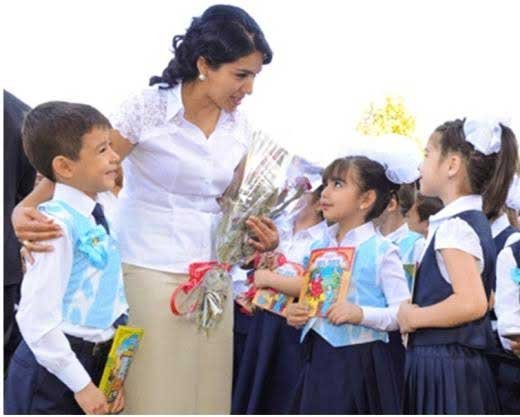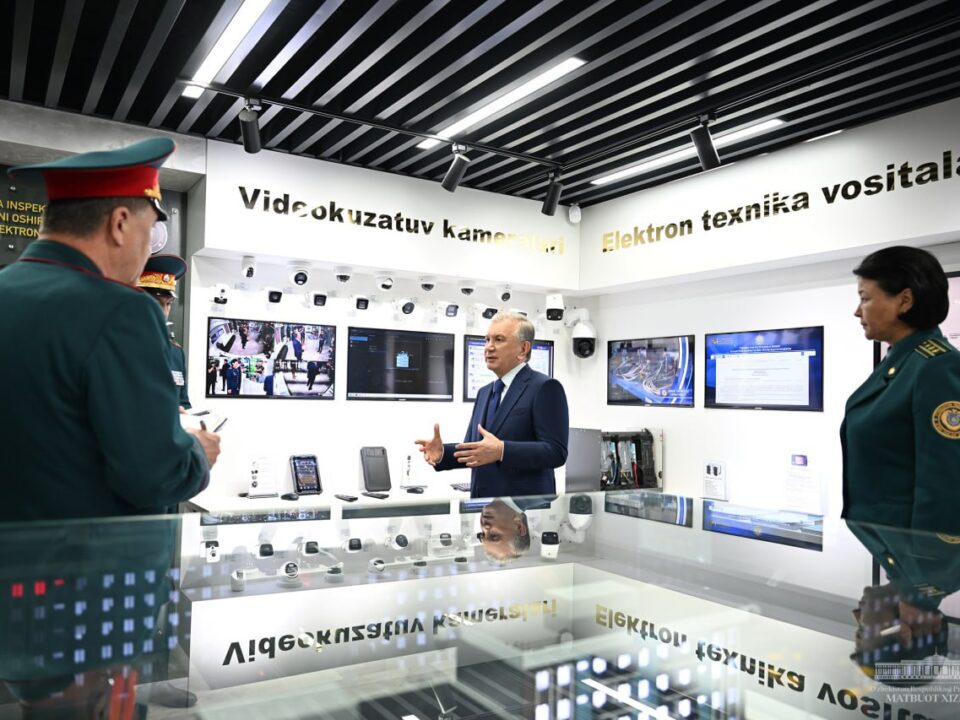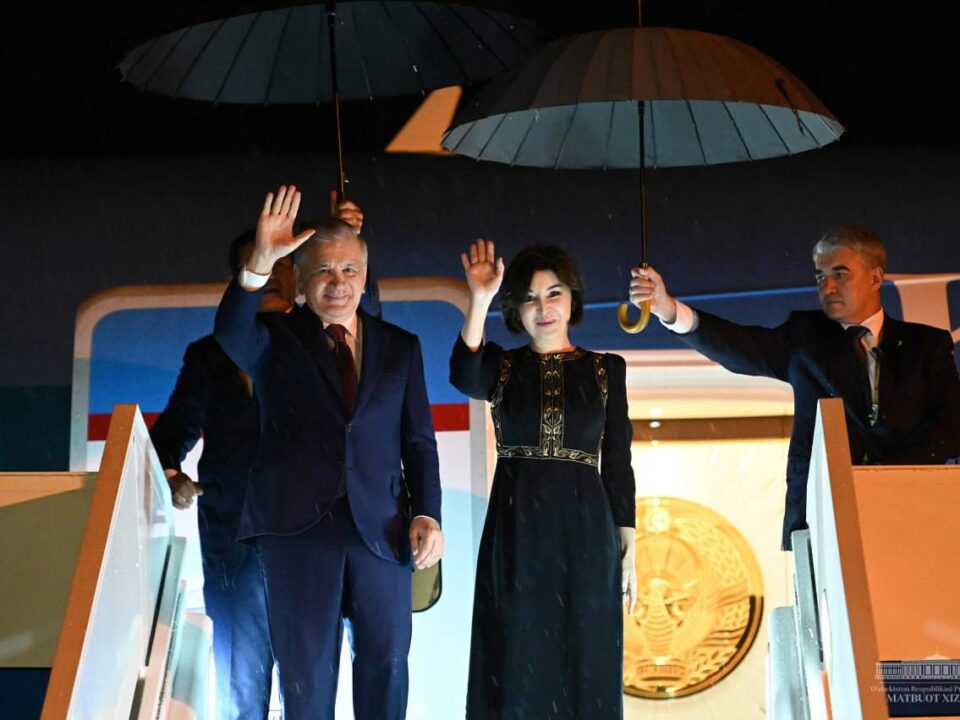On October 1, Uzbekistan celebrates Teacher’s Day
The National Program for Personnel Training adopted 19 years ago and large-scale work carried out in this sphere have radically changed not only the system of education and upbringing but also the entire life of our society and laid down the foundation, in a positive sense, of an “explosion effect”.
A Unique System
For almost five years already graduates of the ninth form have been continuing their education at professional colleges and academic lyceums. What is noteworthy is that almost 10% of graduates of secondary special and professional institutions enroll to higher educational institutions annually.
Millions of children today get education and are brought up at newly built and overhauled educational establishments – at almost 10,000 schools, 1,556 lyceums and colleges and more than 70 higher educational institutions. Based on the new educational system they master modern professions and thanks to it find a worthy place in life, thus vividly manifesting the efficiency of educational model of Uzbekistan and its competitiveness on the international arena.
The national model of education is unique in that it provides an opportunity for everyone to get a professional education. Time will pass and a unique situation will take shape in Uzbekistan’s labor market, when everyone will become a professional specialist.
At the initial stage of the implementation of the National Program for Personnel Training it was necessary to build, renovate and furnish the required number of schools, professional colleges and academic lyceums in order to ensure the functioning of a compulsory 12-year educational system guaranteed by the government. The state, the principal reformer on the issues of improving the system of education – continuous perfection of the quality of education, modernization of the educational process for training specialists meeting the demand of the labor market – faces new tasks today.
New mechanisms have been launched today headed by special funds under the Ministry of Finance, which secure the consolidation of the material-technical bases of educational institutions at all levels. A particularly important place in this process belongs to the solution of problems related to raising the teachers’ qualification level, since only those teachers and mentors , who continuously strive for self-improvement, are able to raise the level of their knowledge and qualification, feel the heartbeat of the time and capable to bring up comprehensively developed and mature personalities.
The system of re-training and qualification improvement of teachers and the faculty of all educational institutions has been revised in recent years. They are provided with additional conditions for mastering computer technologies and foreign languages. The methodological support of the educational process has been raised to a qualitatively new level. For example, methodical guidelines for teachers have been printed out at schools as supplements to text books.
Improvement of the system of studying foreign languages and information-communication technologies has turned into the main direction in the activity of the entire educational system, so that every graduate complied with the requirements of the time, become a qualified specialist, mastered a foreign language and improved his/her computer skills.
Education fr om the Cradle
Special attention is paid to pre-school education. ‘The Concept of Pre-School education in the Republic of Uzbekistan’ was adopted in 2008, and it reflects the founding factors, goals and objectives of renovating this sphere of activity: shaping of a child as a personality is a priority task among them all.
Systemic and stage-by-stage activities on the construction and reconstruction of kindergartens, their provision with didactic materials, toys and sports inventory have been put on rail for its implementation. They are financed on account of the State and local budgets. For instance, 3 billion soums were allocated annually in 2010-2015 for fitting out 4916 establishments wh ere about 668,000 boys and girls were trained. Non-governmental kindergartens, the number of which reached 132, have started their operation; they are attended by nearly 4,500 children.
Children of pre-school age enjoy the services of free calisthenics, chess and other circles, the circles of foreign languages, early professional orientation, and much more. They study the national cultural heritage and traditions in the offices of spirituality, libraries and museums under the kindergartens.
The number of educators with a higher education alone increased almost threefold from 2011 till 2016. A system of continuous qualification improvement and introduction of the modern methods of work have been set up for them.


























